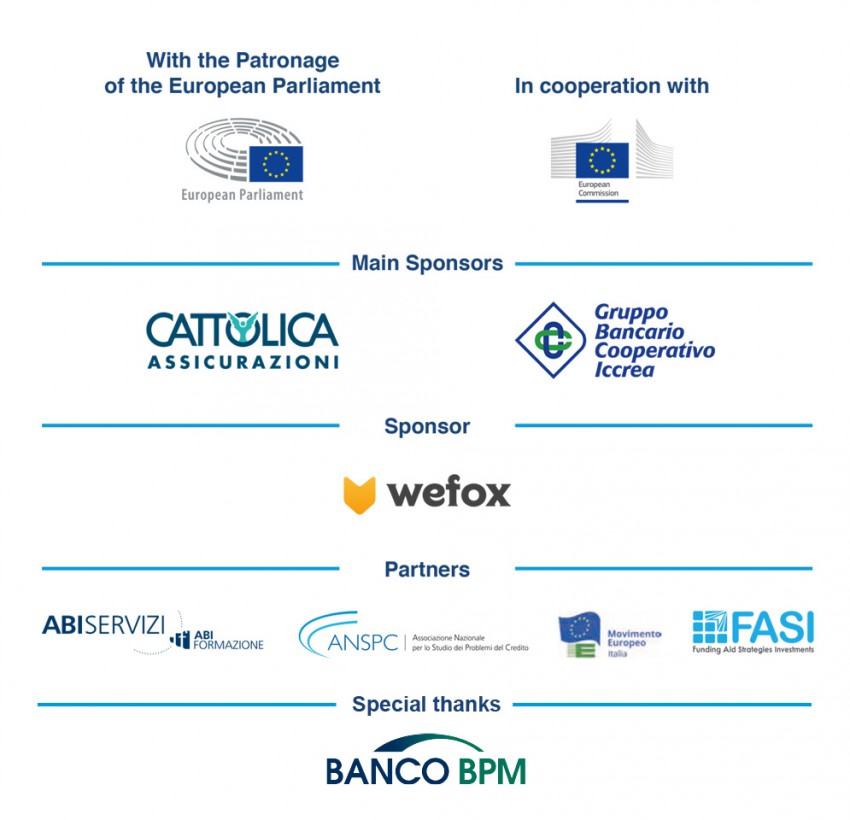9/12 Plenary Session Scuderie di Palazzo Altieri
Opening Remarks and Guests of Honour: L. Abete, P. Gentiloni, G. Conte
Europe’s Main Challenge: Financing Competitiveness and Sustainable Growth: F. M. Castaldo, R. Gualtieri, M. Cole-Fontayn, F. Demarigny, J. M. González-Páramo, D. Marsh, M. Nava, D. Wright, P. Garonna




